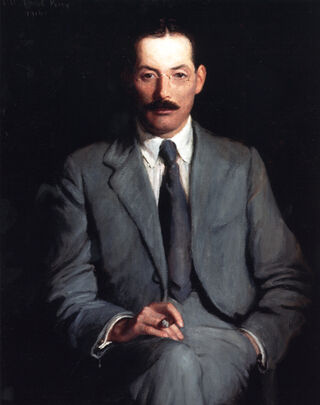Suicide
Suicide Lessons From Poetry
"Richard Cory," by E.A. Robinson (1897)
Posted September 30, 2020
Whenever Richard Cory went down town,
We people on the pavement looked at him:
He was a gentleman from sole to crown,
Clean favored, and imperially slim.
And he was always quietly arrayed,
And he was always human when he talked;
But still he fluttered pulses when he said,
"Good-morning," and he glittered when he walked.
And he was rich—yes, richer than a king—
And admirably schooled in every grace:
In fine, we thought that he was everything
To make us wish that we were in his place.
So on we worked, and waited for the light,
And went without the meat, and cursed the bread;
And Richard Cory, one calm summer night,
Went home and put a bullet through his head.
—from "Richard Cory," by Edwin Arlington Robinson
Edwin Shneidman, the founder of American suicidology (the scientific study of suicide), once proposed a short list of books for people wanting to learn more about suicide. These were Tolstoy's Anna Karenina, Flaubert's Madame Bovary, and Chopin's The Awakening.
I'm sure many would find it odd that he selected three novels and not a collection of scientific articles. I have always supposed that this was because a novel can convey the details of an individual life with far more complexity than any scientific case study could hope to achieve. But being essentially case studies in suicide, don't we simply end up knowing plenty about the suicides of Anna, Emma, and Edna, and perhaps not so much about suicide in general?
Maybe that's Shneidman's point. Perhaps he's warning us not to seek to generalize too freely from individual cases. Maybe he's reminding us that no too suicides are alike, just as no two people are alike. In that case, to learn more about suicide, we need to keep reading.

The poem "Richard Cory," by Edwin Arlington Robinson, is one of the most anthologized works in American literature. One reason for this is probably the "surprise ending" that gives a bit of a thrill to beginning readers of poetry. The other is the dark fascination that the subject of suicide holds for us, and the poem's suggestion that there are hidden depths and silent suffering beneath our outward appearances. But what knowledge about suicide can we glean from the poem?
One possible lesson is that "you can't tell if someone is suicidal just by looking." I am reminded of the story of a young man who survived a fall from the Golden Gate Bridge. Just before he decided to jump over the railing, two female tourists approached him and asked him to take their photo. "That's it," he thought. "No one cares. I'm done." But how could those women have known why he was hanging out by the rail? Internal distress does not always manifest externally.
Richard Cory is far from agitated. He is "quietly arrayed" and seems almost to float magnificently among the common people, bidding them "Good morning." The contrast between his sedate manner of living and the violent, brutal manner of his death is a source of the poem's power. Do calm, sedate people die by suicide? Yes, sometimes.
As a clinician, I suspect that Richard Cory is able to maintain his calm outward demeanor for two reasons. The first is probably a form of "muscle memory" — the man was trained to demonstrate good manners. It was probably considered quite improper in his family and class to display strong emotions of any kind. One simply restrained oneself and did what was proper.
I am startled by the contrast between Richard Cory saying, "Good morning," and author William Styron, in his memoir of suicidal depression, Darkness Visible, accosting a stranger in a New York City restaurant and saying, "I'm dying." In the latter case, the pain of despair has broken through polite social conventions. Richard Cory's walls of reserve were made of sterner stuff.
The second reason why I believe Richard Cory appeared so sedate was that he had long ago made up his mind to die by suicide. With that horrific decision already resolved, there was nothing left to do but to go through the motions of living until the fatal evening.
But why did he choose that particular "calm, summer night?" That's a mystery. Was it the anniversary of his father's own suicide? The birthday of a long lost love? The fact that there is no apparent impetus for his suicide is perhaps most puzzling for the observing townspeople. Why, of all people, would he choose to end his life? Every suicide leaves us with mysteries.
The relationship of the townspeople to Richard Cory is stressed in the poem. He is their beau ideal. They all want to be like him — to have his life. They find him attractive and he "fluttered pulses" when he spoke. Why did they have that unconscious autonomic response to his speech?
I find it ambiguous. It could be because they love him and are in awe of him. But this quickening of the heart rate could be sparked by something else. Maybe, at some level, the townspeople can sense that something is wrong, that danger lurks beneath the glittering surface.
I am reminded of a small study done in a Swiss psychiatric hospital in which discharge interviews with patients who had been admitted for suicidality were videotaped. The discharging clinician provided a numerical rating of suicide risk at this time, but these ratings did not predict which patients went on to attempt suicide again. What did predict future attempts was the length of time the clinician spent gazing directly at the patient during the interview. They knew something was wrong and they tried to see what it was, but their conscious minds, as reflecting in their risk ratings, overrode their instincts.
Richard Cory dressed well, has good manners, and is "richer than a king." But what doesn't the poet mention about him? As far as we know, he has no family. There are no survivors. For all we know, the only people he spoke to were the common people whom he greeted and any servants he might have had. Perhaps he was "human when he talked" because he was desperately craving some form of human connection? Richard Cory seems to me a lonely man, and loneliness can kill.
The poet is silent on another aspect of Richard Cory's life. He might be "richer than a king," but for all we know he does not work. He is not a member of a profession. Even the preservation of his presumed inherited fortune does not appear to require any effort or daring. This is quite possibly a man with no purpose, with nothing to do each day but to enjoy himself. The common people might believe that they would be happy "in his place," but Richard Cory might have died because he did not have to sweat to earn his daily bread.
Lessons from the poem: You can't tell if someone is suicidal just by looking. Calmness can replace agitation after the suicidal person resolves to die and acquires the means to do so. When you are in distress, let someone know, even if doing so upsets social conventions. Don't dismiss physiological reactions — if something feels off, it very well might be. Humans are not built for solitude but crave connection. For many people, work provides some essential meaning in their lives. All deaths by suicide are accompanied by unanswerable mysteries.
To find a therapist, please visit the Psychology Today Therapy Directory.




